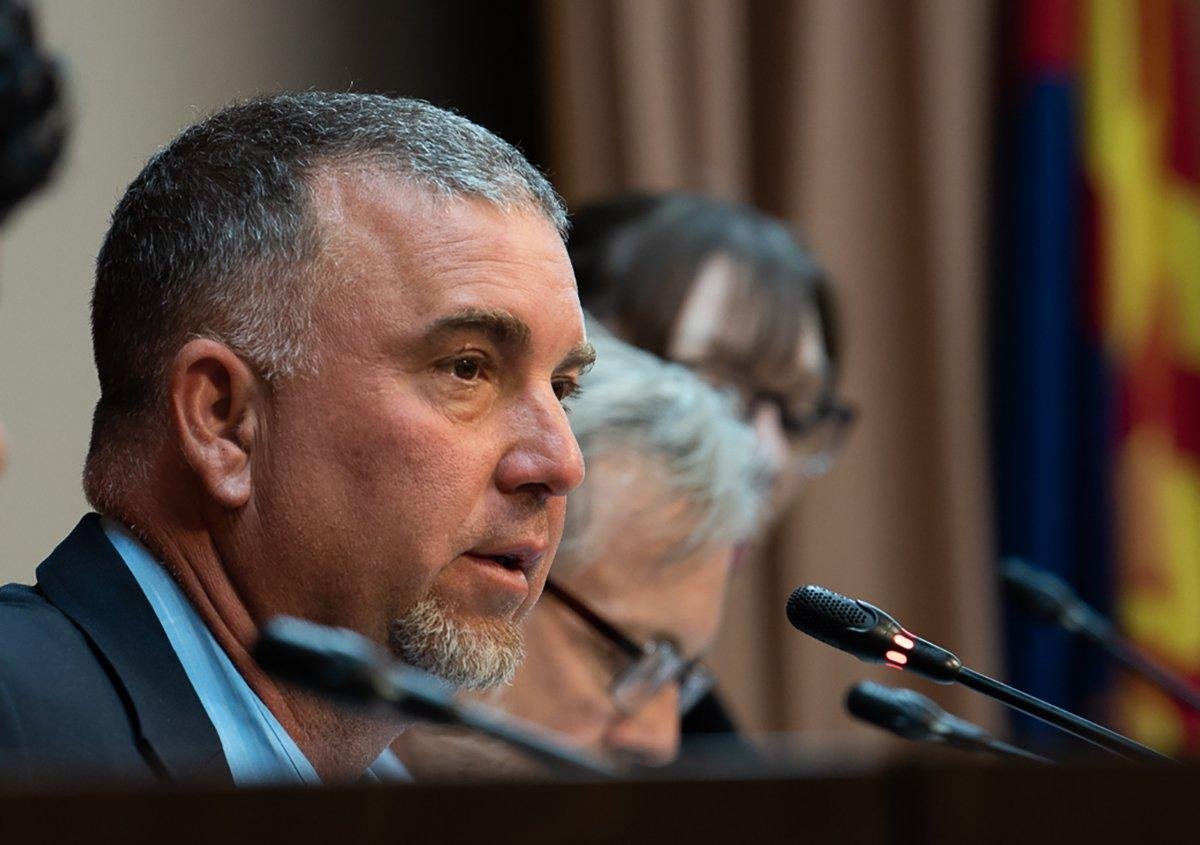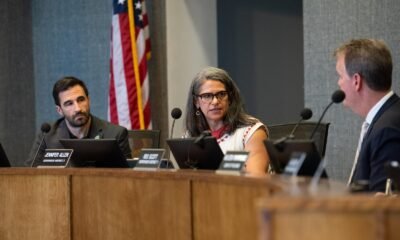Business
Policy Makers Heinz & Cunningham Break the Mold with Bold Ideas

Voters play a crucial role in electing city council members and county supervisors, who are responsible for setting policies. The professional staff’s role is to implement these directives effectively. However, when elected officials propose solutions to pressing issues, reactions tend to become awkward and contentious.
Pima County Supervisor Matt Heinz recently proposed a 1.5-cent primary property tax increase per $100 of valuation to fund affordable housing programs. Initially, it was set at 3 cents but was later scaled back. This suggestion was placed on a meeting agenda without prior discussions among board members—prohibited by state law.
Meanwhile, Tucson City Councilmember Paul Cunningham introduced his own initiative aimed at supporting landlords while potentially assisting hundreds of homeless individuals. His plan requires an investment of $100,000. When staff members suggest such ideas, they often receive accolades; however, when proposed by elected officials, the response can be less enthusiastic.
Though the mood surrounding these proposals was not overtly hostile, it lacked warmth, akin to a polite but dismissive “Bless your heart.” Heinz’s proposal could have been more strategically presented. It seemed less a fully-formed plan and more an appeal for funding to address the housing crisis. A county coalition is in the process of developing comprehensive proposals for next year’s budget, but time constraints may limit immediate action.
Furthermore, a significant observation was presented by Keith Bentele from the Tucson-Pima Coalition to End Homelessness: the affordability of homes has drastically decreased in Tucson, dropping from 75% to approximately 38% for those earning the median income. This trend leaves many individuals struggling and drives rental costs higher.
Bentele highlighted the urgency of the situation, emphasizing that local responses must be robust. Democratic Supervisor Jen Allen expressed her support for the housing initiative, while Republican Steve Christy opposed the tax increase, highlighting partisan divides in views on taxation. Supervisor Rex Scott proposed delaying action until a concrete plan could be crafted, a suggestion that raises valid concerns given the pressing nature of current housing needs.
The increasing visibility of homelessness within communities has sparked voter dissatisfaction. A recent statewide ballot measure allows property owners to seek tax cuts if local governments fail to enforce homelessness laws. Addressing homelessness is undeniably crucial—waiting could exacerbate an already challenging situation.
Newly elected board member Andres Cano is on the same page as Scott, advocating for clearer allocation details within Heinz’s proposal. Although he did not vote “yes” this time, he plans to work with Heinz on refining the proposal before the subsequent meeting. It appears Heinz has the potential support but navigating the funding process could be streamlined.
On the other hand, Councilmember Cunningham’s initiative, dubbed “Housing Alternatives for Urban Strength” (HAUS), faced its own set of hurdles. His plan intends to facilitate housing for individuals living in shelters by providing financial incentives to landlords to reduce upfront costs. However, initial responses were tepid, with concerns over legal implications and funding sources. The cost remains relatively modest when considering the potential benefits.
Amidst legal concerns, as highlighted by City Attorney Mike Rankin, innovative proposals like Cunningham’s must carefully navigate Arizona’s legislative landscape. Yet, similar programs have successfully operated in other counties, raising questions about the feasibility of such initiatives.
The current housing crisis in Southern Arizona warrants immediate and tailored responses. Homelessness manifests in various forms, each requiring specific considerations for effective solutions. Cunningham’s plan addresses one facet of this multifaceted problem—aiming to lessen the barriers faced by potential tenants.
Both Heinz and Cunningham are challenging the status quo. Typically, staff generate solutions based on elected officials’ observations. This process should ideally flow from the grassroots up to ensure real-world effectiveness. Elected leaders must be empowered to craft policies that directly address pressing community needs.

















